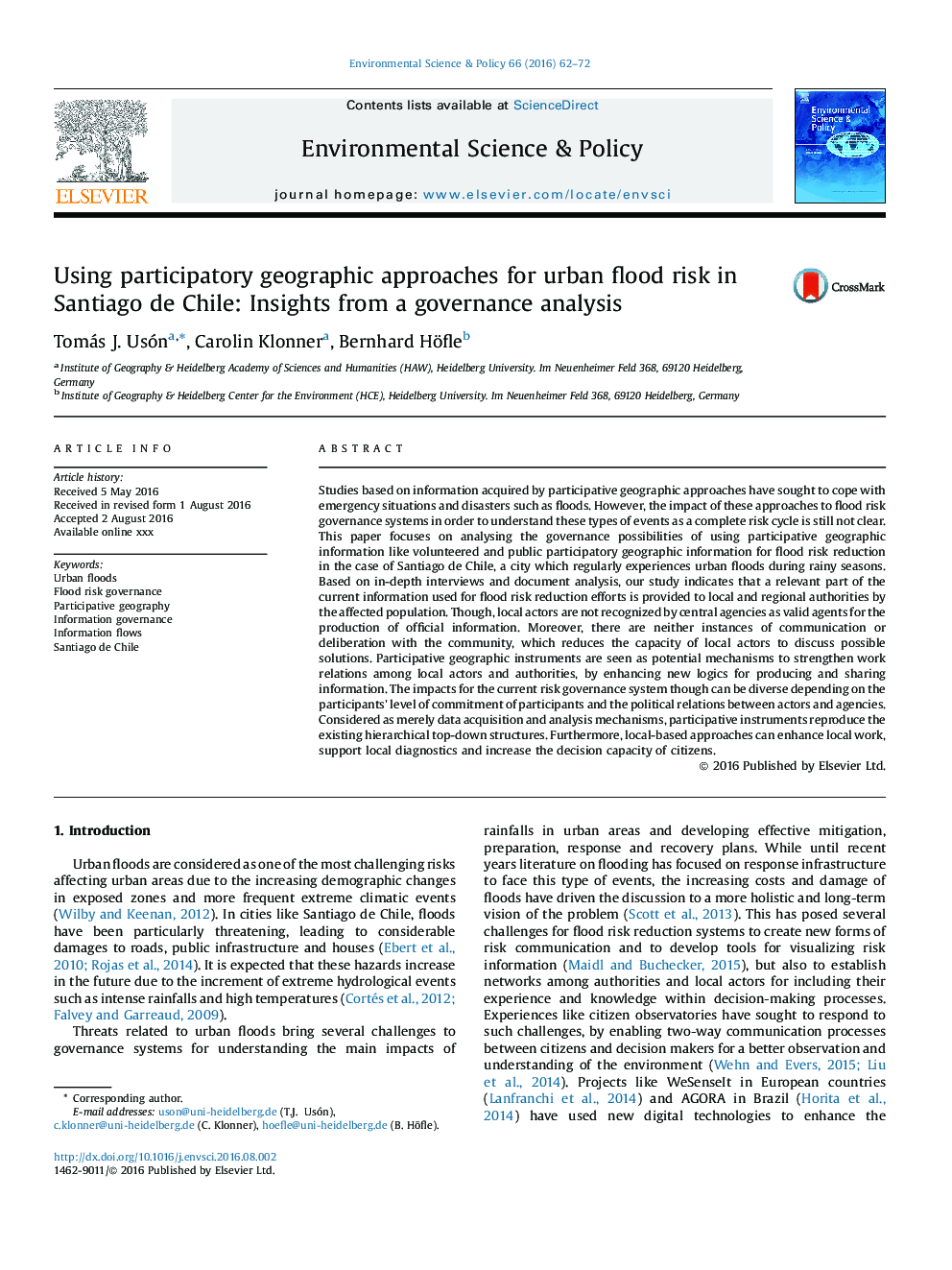| کد مقاله | کد نشریه | سال انتشار | مقاله انگلیسی | نسخه تمام متن |
|---|---|---|---|---|
| 1053406 | 1485042 | 2016 | 11 صفحه PDF | دانلود رایگان |
• Studies based on information acquired by participative geographic approaches have scarcely inquired into the impact of these approaches to risk governance systems.
• Based on interviews and documents analysis, this paper analyses the governance possibilities of using participative geographic information for flood risk reduction in Santiago, Chile.
• Part of the current information used for flood risk reduction is provided by the affected population. However, they are not recognized by central agencies as valid actors at a governance level.
• Participative geographic instruments are seen as potential mechanisms to strength work relations among local actors and authorities, by enhancing new logics for producing and sharing information.
• Impacts of participatory approaches to the current risk governance system can be diverse depending on the level of commitment of participants and the political relations between actors and agencies.
Studies based on information acquired by participative geographic approaches have sought to cope with emergency situations and disasters such as floods. However, the impact of these approaches to flood risk governance systems in order to understand these types of events as a complete risk cycle is still not clear. This paper focuses on analysing the governance possibilities of using participative geographic information like volunteered and public participatory geographic information for flood risk reduction in the case of Santiago de Chile, a city which regularly experiences urban floods during rainy seasons. Based on in-depth interviews and document analysis, our study indicates that a relevant part of the current information used for flood risk reduction efforts is provided to local and regional authorities by the affected population. Though, local actors are not recognized by central agencies as valid agents for the production of official information. Moreover, there are neither instances of communication or deliberation with the community, which reduces the capacity of local actors to discuss possible solutions. Participative geographic instruments are seen as potential mechanisms to strengthen work relations among local actors and authorities, by enhancing new logics for producing and sharing information. The impacts for the current risk governance system though can be diverse depending on the participants' level of commitment of participants and the political relations between actors and agencies. Considered as merely data acquisition and analysis mechanisms, participative instruments reproduce the existing hierarchical top-down structures. Furthermore, local-based approaches can enhance local work, support local diagnostics and increase the decision capacity of citizens.
Journal: Environmental Science & Policy - Volume 66, December 2016, Pages 62–72
